At Tilbury Elizabeth arrived wearing a silver breastplate and from her horse delivered one of the most famous speeches in history in front of her assembled troops, this speech has always been said to have been rousing and defiant and contains this one famous line
"I know I have the body of a weak, feeble woman; but I have the heart and stomach of a king, and of a king of England too"
It is this one line that comes to mind when we think of Elizabeth and the Spanish Armada.
The Tilbury Speech
"My loving people, We have been persuaded by some that are careful of our safety, to take heed how we commit our selves to armed multitudes, for fear of treachery; but I assure you I do not desire to live to distrust my faithful and loving people. Let tyrants fear. I have always so behaved myself that, under God, I have placed my chiefest strength and safeguard in the loyal hearts and good-will of my subjects; and therefore I am come amongst you, as you see, at this time, not for my recreation and disport, but being resolved, in the midst and heat of the battle, to live and die amongst you all; to lay down for my God, and for my kingdom, and my people, my honor and my blood, even in the dust. I know I have the body of a weak, feeble woman; but I have the heart and stomach of a king, and of a king of England too, and think foul scorn that Parma or Spain, or any prince of Europe, should dare to invade the borders of my realm; to which rather than any dishonor shall grow by me, I myself will take up arms, I myself will be your general, judge, and rewarder of every one of your virtues in the field. I know already, for your forwardness you have deserved rewards and crowns; and We do assure you on a word of a prince, they shall be duly paid. In the mean time, my lieutenant general shall be in my stead, than whom never prince commanded a more noble or worthy subject; not doubting but by your obedience to my general, by your concord in the camp, and your valor in the field, we shall shortly have a famous victory over these enemies of my God, of my kingdom, and of my people."
Elizabeth's words come down to us from a letter dated 1623. Accepted as being authentic, the document below was found
in a letter from Leonel Sharp to the Duke of Buckingham. In 1588, Sharp was chaplain to Robert Devereux, Earl of Essex and
claimed to have present when Elizabeth delivered her speech.
In his letter he wrote
"I remember in '88 waiting upon the Earl of Leicester at Tilbury camp, and in '89, going into Portugal with my noble master, the Earl of Essex, I learned somewhat fit to be imparted to your grace.The queen lying in the camp one night, guarded with her army, the old treasurer, Burleigh, came thither and delivered to the earl the examination of Don Pedro, who was taken and brought in by Sir Francis Drake, which examination the earl of Leicester delivered unto me to publish to the army in my next sermon. The sum of it was this.Don Pedro, being asked what was the intent of their coming, stoutly answered the lords: What, but to subdue your nation and root it out.Good, said the lords, and what meant you then to do with the catholics? He answered, We meant to send them (good men) directly unto heaven, as all that are heretics to hell. Yea, but, said the lords, what meant you to do with your whips of cord and wire? (Whereof they had great store in their ships.) What? said he, we meant to whip you heretics to death that hare assisted my master's rebels and done such dishonour to our catholic king and people. Yea, but what would you have done, said they, with their young children? They, said he, which were above seven years old should hare gone the way their fathers went, the rest should have lived, branded in the forehead with the letter L for Lutheran, to perpetual bondage.This, I take God to witness, I received of those great lords upon examination taken by the council, and by commandment delivered it to the army.The queen the next morning rode through all the squadrons of her army, as armed Pallas, attended by noble footmen, Leicester, Essex, and Norris, then lord marshall, and divers other great lords. Where she made an excellent oration to her army, which the next day after her departure, I was commanded to re-deliver to all the army together, to keep a public fast. Her words were these"
Sharp then goes on write the most famous version of the Tilbury speech.
There is another version of the speech dated to 1612 by William Leigh, a clergyman and royal tutor, who is now remembered
for his series of sermons 'Queene Elizabeth Paraleld' which is said to includes the first published written record of Elizabeth's speech.
"Come on now, my companions at arms, and fellow soldiers, in the field, now for the Lord, for your Queen, and for the Kingdom. For what are these proud Philistines, that they should revile the host of the living God? I have been your Prince in peace, so will I be in war; neither will I bid you go and fight, but come and let us fight the battle of the Lord. The enemy perhaps may challenge my sex for that I am a woman, so may I likewise charge their mould for that they are but men, whose breath is in their nostrils, and if God do not charge England with the sins of England, little do I fear their force… Si deus nobiscum quis contra nos? (If God is with us, who can be against us?)
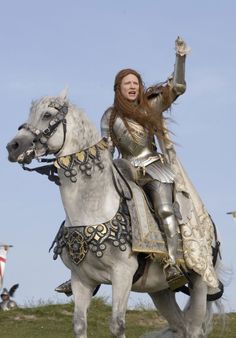
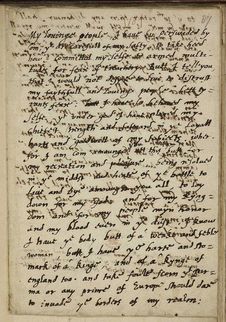
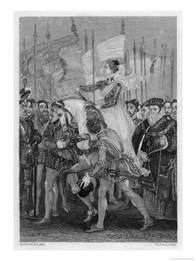
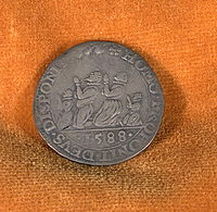
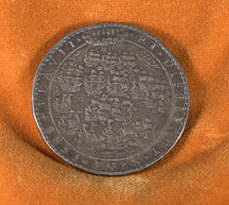

 RSS Feed
RSS Feed
